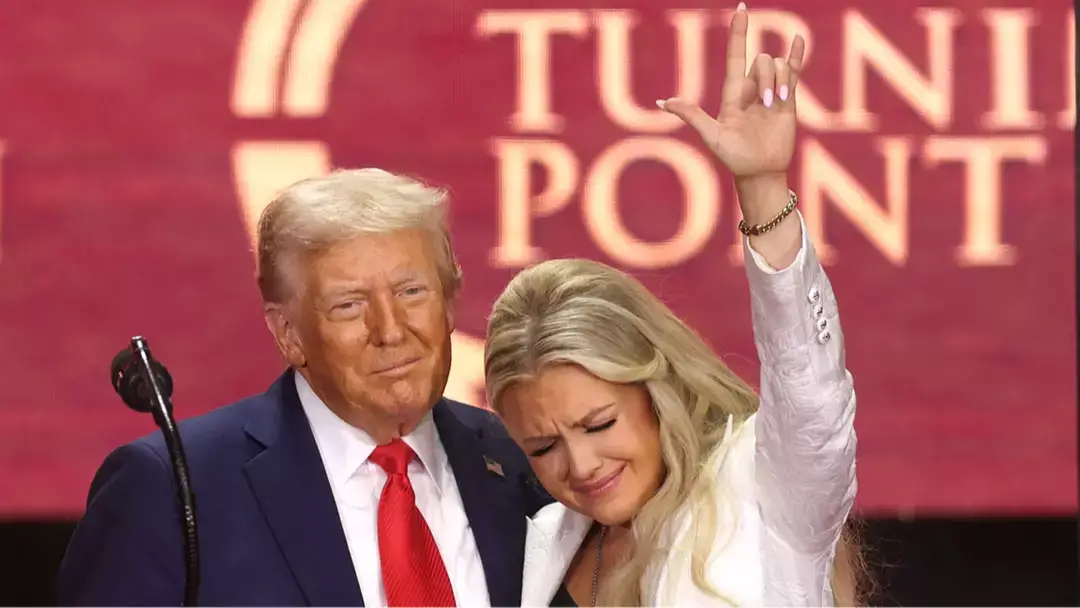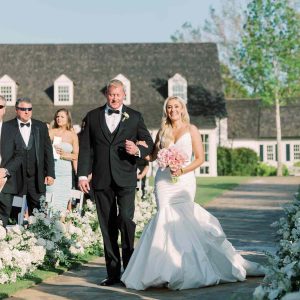Trump and Vance Lead 200,000 Mourners at Charlie Kirk Memorial in Arizona
President Donald Trump and Vice President J.D. Vance joined tens of thousands of mourners at State Farm Stadium in Glendale, Arizona, on Sunday for a massive memorial service honoring conservative activist Charlie Kirk. The 31-year-old Turning Point USA founder was fatally shot on September 10 during a debate at Utah Valley University, a tragedy that has shaken the conservative movement and galvanized supporters nationwide.
A National Outpouring of Grief
The event drew over 60,000 people inside the football stadium, with an estimated 200,000 more watching online and attending in surrounding overflow venues. Lines formed before sunrise, with many turned away once capacity was reached. The sheer size of the crowd underscored Kirk’s influence and his reputation as one of the most prominent young conservative voices in America.
Security was extremely tight, with Secret Service, local police, and federal officers coordinating to secure the massive event. Officers cited the “extraordinary national significance” of Kirk’s death, which has become both a deeply personal tragedy and a political flashpoint.
Erika Kirk’s Emotional Tribute
At the center of the memorial was Erika Kirk, Charlie’s widow, who delivered a tearful yet powerful address. Fighting back emotion, she publicly forgave her husband’s accused killer, 22-year-old Tyler Robinson, who faces capital murder charges.
“He wanted to save young men just like the one who took his life,” Erika said, earning a standing ovation. “That man, that young man, I forgive him.”
She recounted moments of their marriage, describing Charlie as a devoted husband and father who constantly sought to serve others. “My marriage with Charlie was the best thing that ever happened to me,” she said, recalling how he would often leave her handwritten notes asking, ‘How can I better serve you as a husband?’
Erika also recalled the horrific moment she saw her husband’s body after the shooting, acknowledging the shock but also the peace she felt in knowing he had lived with faith and purpose.
She cited Isaiah 6:8 — “Here I am, Lord. Send me” — noting that her husband had long embraced the possibility of sacrifice for a cause greater than himself.
Trump Delivers a 45-Minute Eulogy
President Trump took the stage as the final speaker, delivering a 45-minute eulogy that combined personal memories, humor, and sharp political commentary.
“He did not hate his opponents. He wanted the best for them,” Trump said of Kirk. Then, in a candid admission, Trump added: “That’s where I disagreed with Charlie. I hate my opponent, and I don’t want the best for them. I’m sorry. I am sorry, Erika… maybe you can convince me otherwise. But I can’t stand my opponent.”
The remarks drew laughter, applause, and some criticism online, with detractors accusing the president of politicizing the solemn occasion. Supporters, however, praised his honesty and noted the contrast with Erika’s public act of forgiveness.
Trump also framed Kirk’s killing as more than a personal attack, describing it as “an attack on our entire nation.” He credited Kirk with helping him reconnect with young voters and even introducing him to J.D. Vance, now Vice President.
“Charlie’s murder was not just an attack on one man or one movement,” Trump declared. “It was an attack on America’s future.”
Vance Hails Kirk as a Martyr
Vice President Vance, who personally transported Kirk’s casket aboard Air Force Two with Erika and the couple’s children, called the activist both a friend and a hero.
“Charlie Kirk was a martyr for the Christian faith and a hero to the United States of America,” Vance said. “Our administration is here not just because we loved Charlie as a friend, but because we know we would not be here without him.”
He urged young conservatives to honor Kirk’s legacy by embracing marriage, family, and faith — themes that Erika also highlighted in her address.
Erika Steps Into New Leadership Role
In one of the most significant moments of the service, Erika Kirk was formally announced as the new CEO of Turning Point USA. The decision marks both a continuation of her husband’s work and a symbolic passing of the torch.
She pledged to carry on Charlie’s mission of guiding what he called “the lost boys of the west,” urging young men and women to build strong families and stand for faith-driven values.
“Charlie died with incomplete work, but not unfinished business,” she told the massive crowd. “His mission continues.”
The Political Reverberations
The political implications of Kirk’s death and the memorial were undeniable. The Trump administration has thrown its full support behind seeking the death penalty for Robinson, and Trump framed the tragedy as evidence of the dangers of “radicalized leftist violence.”
Meanwhile, Erika made clear that she wants no role in determining Robinson’s fate: “I want the government to decide this. I do not want that man’s blood on my ledger.”
Her statement struck a stark contrast with Trump’s fiery words, highlighting the complexity of grief and forgiveness in the face of national tragedy.
A Legacy Beyond the Funeral
As mourners left the stadium, one thing was clear: Charlie Kirk’s impact extended far beyond his age. A figure who began as a college activist had built a movement powerful enough to fill a football stadium in his memory.
For Trump and Vance, the service was not only a farewell to a political ally but also a rallying moment for their base. For Erika, it was both a personal tragedy and the beginning of a new chapter of leadership.
The debate over immigration, violence, and political rhetoric will no doubt continue in the wake of Kirk’s assassination. But for those gathered in Arizona, the memorial was as much about the future as it was about the past — a reminder of the stakes, the sacrifices, and the enduring search for unity.

James Jenkins is a celebrated Pulitzer Prize-winning author whose work has reshaped the way readers think about social justice and human rights in America. Raised in Atlanta, Georgia, James grew up in a community that instilled in him both resilience and a strong sense of responsibility toward others. After studying political science and creative writing at Howard University, he worked as a journalist covering civil rights issues before dedicating himself fully to fiction. His novels are known for their sharp, empathetic portraits of marginalized communities and for weaving personal stories with broader political realities. Jenkins’s breakout novel, Shadows of Freedom, won national acclaim for its unflinching look at systemic inequality, while his more recent works explore themes of identity, resilience, and the fight for dignity in the face of oppression. Beyond his novels, James is an active public speaker, lecturing at universities and participating in nonprofit initiatives that support literacy and community empowerment. He believes that storytelling is a way to preserve history and inspire change. When not writing, James enjoys jazz music, mentoring young writers, and traveling with his family to explore cultures and stories around the world.









